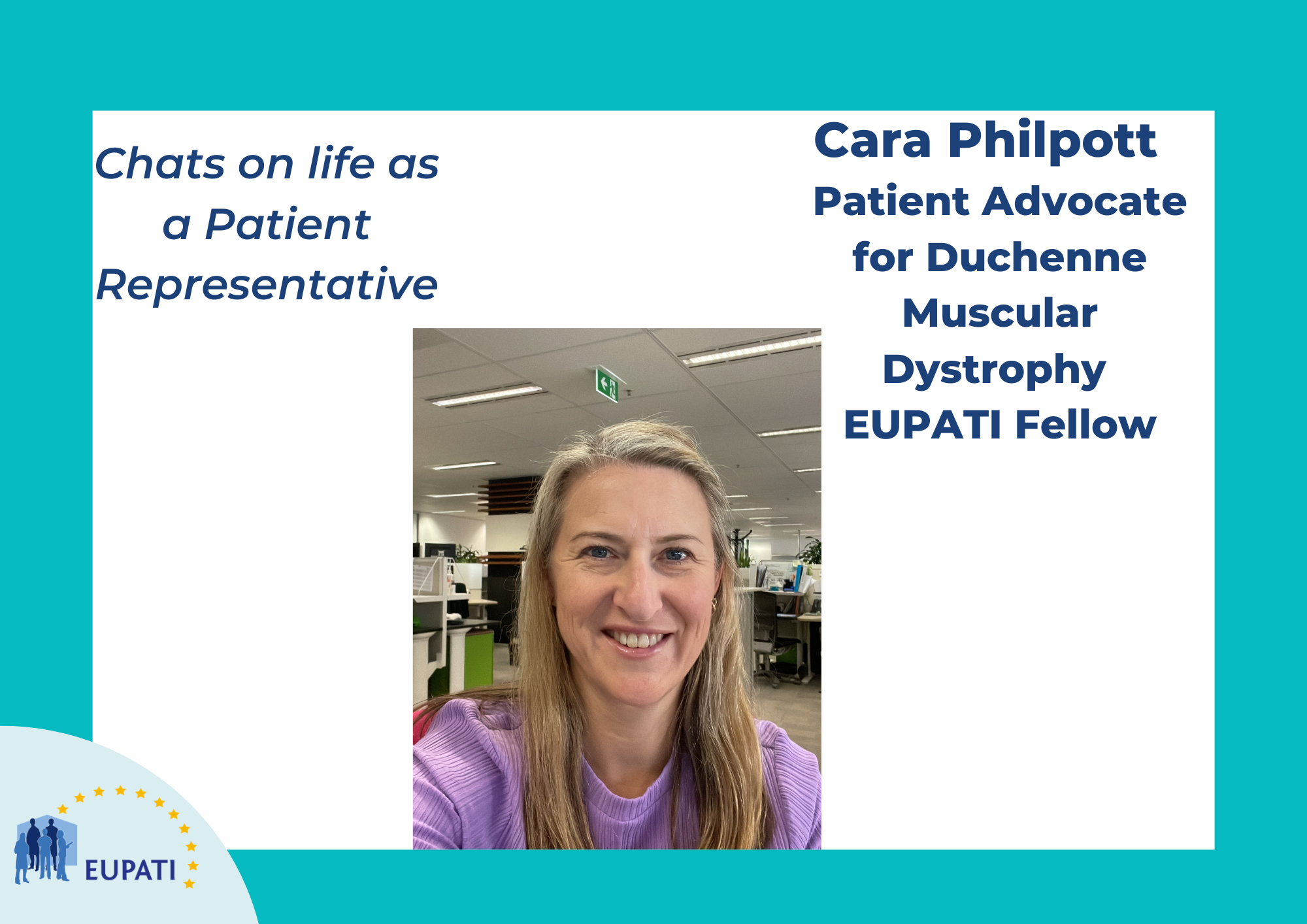
Cara Philpott is a patient representative from Perth in Western Australia. Her son Lucas was diagnosed with Duchenne Muscular Dystrophy in 2018 kickstarting her journey into patient advocacy. The life-changing event of her son’s diagnosis has opened up the patient engagement world and is proudly contributing to the patient’s voice.
Cara who graduated last year as part of Cohort 5 is the first EUPATI Fellow from Australia. Thanks to Cara we have more Australian EUPATI Fellows who have graduated since and who we hope will spread the word of the value of patient education further down under. We got in touch with Cara recently to ask her about her journey in patient engagement so far.
Can you tell us a few words about yourself and your journey in patient engagement?
I live in Perth, Western Australia with my husband Steve, my son Lucas who is 7 years old and my daughter, Chloe who is 6. In 2018 Lucas was diagnosed with Duchenne muscular dystrophy. This diagnosis turned our world upside down. Once we adjusted to a ‘new normal’ of what the future of our family life would be, I sought to find a positive way that I could contribute to the Duchenne community. Becoming involved as a patient representative and an advocate for patient engagement gave me a sense of purpose and comfort. Now, several years into my journey as a patient advocate I have found something that I truly enjoy and there are so many opportunities where patients involvement can contribute to improve access to medicines and health services.
How did you hear about the EUPATI Patient Expert Training Programme?
I heard about the EUPATI patient expert training programme during a patient advocacy workshop run by the World Duchenne Organisation. The course was highly recommended.
Why did you enroll in this training?
I enrolled in this training mainly because similar training is not available in Australia. Even though the content focuses on the EMA and European processes the content still provided me with a huge amount of information and knowledge that I could translate into the Australian context.
What was the feeling of doing the training from Australia? Did you feel any difference?
I commenced the course during the COVID-19 pandemic. As the course was delivered entirely virtually it seemed like a perfect opportunity to participate in a programme that I would otherwise be unable to complete if it were offered in-person in Europe. The time zone difference was a little challenging but participating was a positive outcome during the lockdowns. However, as COVID restrictions eased during the programme, EUPATI announced that the final workshops and graduation would be held in-person… in Madrid!! That was an exciting and unforeseen experience.
What is the difference in the patient engagement field in Australia compared to other parts of the world?
Patient involvement in Australia is not as advanced or integrated as it is at the EMA level and many European/UK countries.
Why training programmes like EUPATI Patient Expert Training Programme are important for patients and caregivers?
I feel that the patient or patient representative voice is critical in every aspect of healthcare. However, it can be difficult and time consuming for patients to understand their condition, adjust to changes in their lives and learn about healthcare and medicines development in a short period of time. The EUPATI training provides patients and representatives with the education and tools necessary to advocate for change and inclusion. It enables patients to engage with clinicians, regulatory bodies, industry… everyone in medicines development and healthcare in a more meaningful way and more confidently able to express their preferences and needs.
What was the most valuable experience for you from this training?
It is very difficult to identify the one most valuable experience! Aside from the content of the training programme which was of very high quality, the workshop facilitators were exceptional and highly engaging, meeting many very experienced patient advocates from across the world. Most recently, this training helped me to secure a role on a project team that is reviewing how patients are engaged in HTA processes in Australia.
What would you advise people who would like to take the training?
This course will be highly beneficial to all patient advocates, experienced or new to the role.
Date posted: November 30, 2023
Categories: Uncategorized



